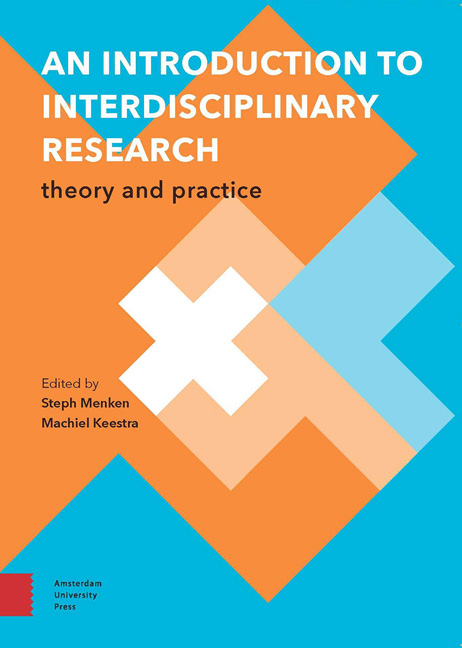Book contents
- Frontmatter
- Contents
- Acknowledgements
- Preface
- Part 1 The Handbook - ‘The What’
- 1 Introduction
- 2 What is Science? A Brief Philosophy of Science
- 3 The Disciplines
- 4 Interdisciplinarity
- 5 Complexity: The Main Driving Force Behind Interdisciplinarity
- 6 Interdisciplinary Integration
- Part 2 The Manual - ‘The How’
- 7 The Interdisciplinary Research Process
- 8 The Problem
- 9 Theoretical Framework and Research Question
- 10 How to Collect and Analyze your Data
- 11 Discussion and Conclusion(s)
- Part 3 Interdisciplinary Research in Practice
- 12 Interdisciplinary Research Example: Fogponics
- 13 Interdisciplinary Careers
- Further Reading
- References
- Colophon
12 - Interdisciplinary Research Example: Fogponics
- Frontmatter
- Contents
- Acknowledgements
- Preface
- Part 1 The Handbook - ‘The What’
- 1 Introduction
- 2 What is Science? A Brief Philosophy of Science
- 3 The Disciplines
- 4 Interdisciplinarity
- 5 Complexity: The Main Driving Force Behind Interdisciplinarity
- 6 Interdisciplinary Integration
- Part 2 The Manual - ‘The How’
- 7 The Interdisciplinary Research Process
- 8 The Problem
- 9 Theoretical Framework and Research Question
- 10 How to Collect and Analyze your Data
- 11 Discussion and Conclusion(s)
- Part 3 Interdisciplinary Research in Practice
- 12 Interdisciplinary Research Example: Fogponics
- 13 Interdisciplinary Careers
- Further Reading
- References
- Colophon
Summary
A group of five bachelor students did their interdisciplinary capstone research project on fogponics, a promising and innovative way to grow crops (Bakker, van der Linden, Steenbrink, Stuut & Veldhuyzen van Zanten, 2014). In this chapter, their interdisciplinary research process is described in accordance with our interdisciplinary research model, step by step.
Step 1 Identify problem or topic
The five students were interested in sustainable agriculture and after some brainstorming and an initial literature search, they came up with an innovative way of growing crops sustainably.
Agriculture is a mostly unsustainable form of land use, because its energy and water consumption, and pollution (from fertilizers, pesticides, herbicides, etc.) are exceeding certain limits. Moreover, the global human population will continue to grow in the coming decades, further pushing the demand for food production. New, efficient and sustainable forms of agriculture have to be developed in order to cope with these challenges. Vertical farming (agriculture on vertically inclined surface such as within a skyscraper) might contribute to a solution to the problems related to conventional agriculture, or, more specifically greenhouse production. Fogponics, as will be explained later on, might be a suitable and sustainable way to grow crops in a vertical farming setting.
This research will focus on the situation in the Netherlands, as a lot of information on the Dutch greenhouse sector is available. A further demarcation is the focus on a specific crop, tomatoes, which will be further explained under Step 3.
Relevant disciplines
In this case, the relevant disciplines were partly determined by the disciplines that the group of students had previously chosen. Other disciplines could have been relevant with regards to this topic, although the final research question was defined in such a way that the following contributing disciplines were sufficient for answering it:
□ Biology: plants,
□ Chemistry: nutrients,
□ Artificial Intelligence: system operating,
□ Mathematics: extrapolating calculations,
□ Economics: costs.
Dominant perspectives (with regard to the problem and the contemplated solution)
□ Biology: agriculture is mostly unsustainable as pollution is exceeding certain limits. Fogponics might contribute to a more sustainable form of agriculture. Biology can shed light on the physiological aspects on the growing of crops within a fogponics context.
- Type
- Chapter
- Information
- An Introduction to Interdisciplinary ResearchTheory and Practice, pp. 103 - 109Publisher: Amsterdam University PressPrint publication year: 2016



